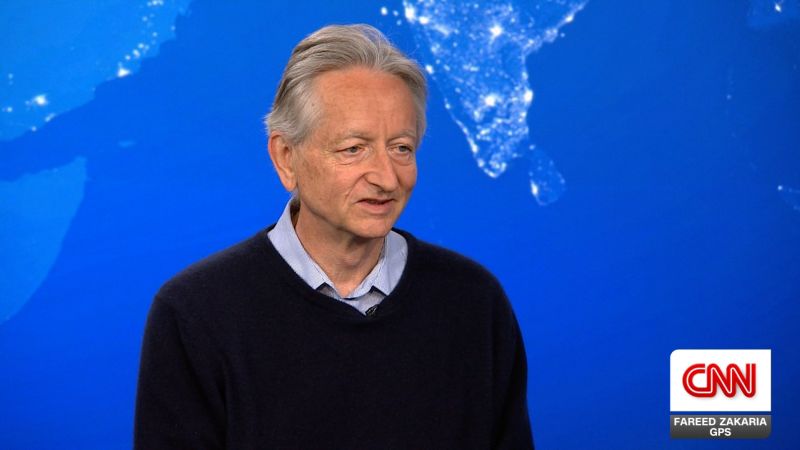Main topic: The existential risk posed by AI
Key points:
1. Jaan Tallinn, co-founder of Skype and Kazaa, believes AI poses a existential risk to humans.
2. Tallinn is concerned about how Big Tech and governments are pushing the boundaries of AI.
3. He questions whether machines could soon operate without the need for human input.
Co-founder of Skype and Kazaa, Jaan Tallinn, warns that AI poses an existential threat to humans and questions if machines will soon no longer require human input.
The potential impact of robotic artificial intelligence is a growing concern, as experts warn that the biggest risk comes from the manipulation of people through techniques such as neuromarketing and fake news, dividing society and eroding wisdom without the need for physical force.
The rapid development of artificial intelligence poses similar risks to those seen with social media, with concerns about disinformation, misuse, and impact on the job market, according to Microsoft President Brad Smith. Smith emphasized the need for caution and guardrails to ensure the responsible development of AI.
Artificial intelligence expert Michael Wooldridge is not worried about the growth of AI, but is concerned about the potential for AI to become a controlling and invasive boss that monitors employees' every move. He emphasizes the immediate and concrete existential concerns in the world, such as the escalation of conflict in Ukraine, as more important things to worry about.
Computer scientist Jaron Lanier asserts that the fear of artificial intelligence is unfounded and that humans have nothing to fear from AI.
Microsoft has warned of new technological threats from China and North Korea, specifically highlighting the dangers of artificial intelligence being used by malicious state actors to influence and deceive the US public.
Artificial intelligence (AI) poses both potential benefits and risks, as experts express concern about the development of nonhuman minds that may eventually replace humanity and the need to mitigate the risk of AI-induced extinction.
Artificial intelligence poses a more imminent threat to humanity's survival than climate crisis, pandemics, or nuclear war, as discussed by philosopher Nick Bostrom and author David Runciman, who argue that challenges posed by AI can be negotiated by drawing on lessons learned from navigating state and corporate power throughout history.
Renowned historian Yuval Noah Harari warns that AI, as an "alien species," poses a significant risk to humanity's existence, as it has the potential to surpass humans in power and intelligence, leading to the end of human dominance and culture. Harari urges caution and calls for measures to regulate and control AI development and deployment.
Artificial Intelligence poses real threats due to its newness and rawness, such as ethical challenges, regulatory and legal challenges, bias and fairness issues, lack of transparency, privacy concerns, safety and security risks, energy consumption, data privacy and ownership, job loss or displacement, explainability problems, and managing hype and expectations.
Artificial intelligence poses an existential threat to humanity if left unregulated and on its current path, according to technology ethicist Tristan Harris.
Artificial intelligence (AI) has become the new focus of concern for tech-ethicists, surpassing social media and smartphones, with exaggerated claims of AI's potential to cause the extinction of the human race. These fear-mongering tactics and populist misinformation have garnered attention and book deals for some, but are lacking in nuance and overlook the potential benefits of AI.
Artificial intelligence (AI) threatens to undermine advisors' authenticity and trustworthiness as machine learning algorithms become better at emulating human behavior and conversation, blurring the line between real and artificial personas and causing anxiety about living in a post-truth world inhabited by AI imposters.
Despite concerns about technological dystopias and the potential negative impacts of artificial intelligence, there is still room for cautious optimism as technology continues to play a role in improving our lives and solving global challenges. While there are risks and problems to consider, technology has historically helped us and can continue to do so with proper regulation and ethical considerations.
Geoffrey Hinton, the "Godfather of AI," believes that AI systems may become more intelligent than humans and warns of the potential risk of machines taking over, emphasizing the need for understanding and regulation in the development of AI technologies.
Artificial intelligence poses both promise and risks, with the potential for good in areas like healthcare but also the possibility of AI taking over if not developed responsibly, warns Geoffrey Hinton, the "Godfather of Artificial Intelligence." Hinton believes that now is the critical moment to run experiments, understand AI, and implement ethical safeguards. He raises concerns about job displacement, AI-powered fake news, biased AI, law enforcement use, and autonomous battlefield robots, emphasizing the need for caution and careful consideration of AI's impact.
Geoffrey Hinton, a pioneer in artificial intelligence (AI), warns in an interview with 60 Minutes that AI systems may become more intelligent than humans and pose risks such as autonomous battlefield robots, fake news, and unemployment, and he expresses uncertainty about how to control such systems.
Geoffrey Hinton, known as the "Godfather of AI," expresses concerns about the risks and potential benefits of artificial intelligence, stating that AI systems will eventually surpass human intelligence and poses risks such as autonomous robots, fake news, and unemployment, while also acknowledging the uncertainty and need for regulations in this rapidly advancing field.
Artificial intelligence could become more intelligent than humans within five years, posing risks and uncertainties that need to be addressed through regulation and precautions, warns Geoffrey Hinton, a leading computer scientist in the field. Hinton cautions that as AI technology progresses, understanding its inner workings becomes challenging, which could lead to potentially dangerous consequences, including an AI takeover.
